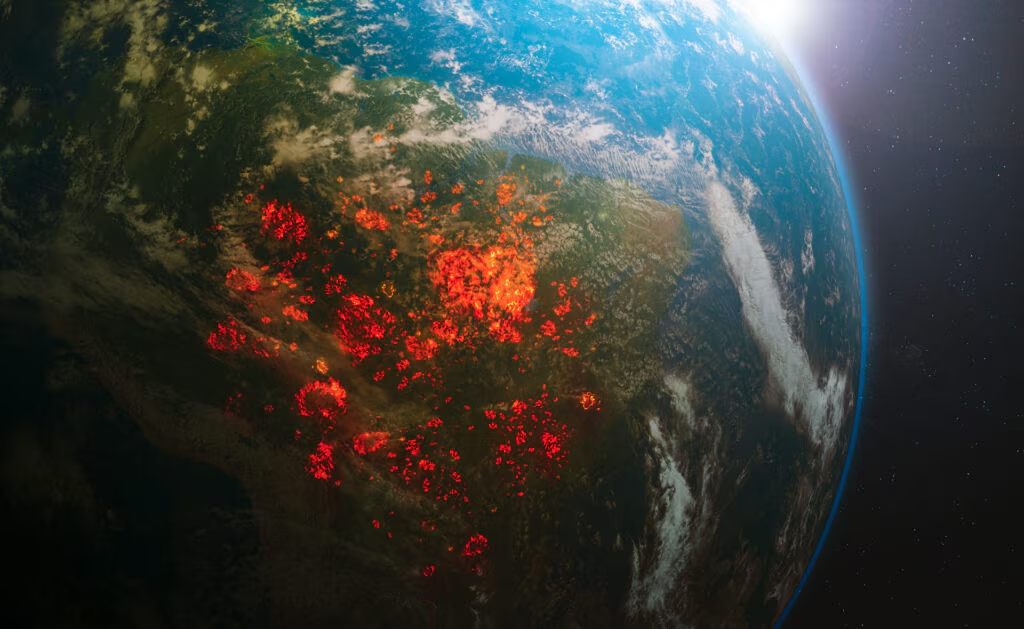Experts from the United Nations Organization (UN) demand a much tougher legislation against ecocide and for environmental protection. Global efforts to prevent crimes against nature (ecocide) and bringing criminals to justice are being hampered by glaring differences in crime laws. environmental Protection between regions.
“Stricter legislation can help deter potential and repeat offenders and expand law enforcement’s range of investigative tools and resources to stop environmental crimes,” said Angela Me, research director. and analysis of the United Nations Office on Drugs and Crime (UNODC)when presenting the report on Friday.
Presented in Vienna, “The Penalty Landscape” is the first part of the first Report on the global analysis of crimes. crimes that affect the environment (ecocide). The United Nations Convention against Transnational Organized Crime (UNTOC) examines how the 193 United Nations Member States define crimes against nature and the penalties they impose for breaking environmental laws.
Ecocide: serious violations against the environment
The study covers nine areas of nature-related crime:
- Deforestation and logging
- Noise pollution
- Fishing
- Waste management
- Protection of wild fauna and flora
- Air, soil and waste pollution
Upon examination, it was established that no less than 85% of UN Member States criminalize crimes against wildlife.
At least 45% of countries impose sentences of four or more years in prison for some crimes against the environment (ecocide)which classifies them as serious crimes, according to the United Nations Convention against Transnational Organized Crime (UNTOC)a universally recognized standard.
“Our test shows global advances in environmental protection laws”Angela Me stated. However, she noted that legislation and its application remain unevenwhich creates “opportunities for criminal groups to exploit gaps in responses.”
Wildlife and waste are the areas in which the majority of countries (164 and 160, respectively) include at least one related criminal offense in their national legislation. On the contrary, soil and noise pollution (99 and 97, respectively) are the areas in which the fewest countries have criminal provisions.
The criminalization and sanctions to punish ecocide are different depending on the country and region.
Penalty level and sanctions vary by country and region. For example, in Oceania, 43% of countries consider illegal fishing a serious crime (carrying four or more years in prison), while in Europe only 2% of countries classify it as such. Meanwhile, 12 of the 18 East African countries consider wildlife crime serious crimes.
Africa and Asia have the highest average percentage of Member States with sentences that meet the definition of serious crime, indicating that The legislation is not necessarily weak, but there is a lack of implementation.
Crimes against wild fauna and flora are those most covered by criminal legislation.
Of the nine areas studied, Crimes against wild fauna and flora are those most frequently covered by criminal legislation.since 164 Member States maintain provisions of this type.
The national legislation of many countries even exceeds the requirements of the CITESthe Convention on International Trade in Endangered Species of Wild Fauna and Flora.
All over the world, penalties for wildlife crimes range from a few days to life in prisonwhile fines can range from a few dollars to three million.
Along with wild fauna and flora, waste-related crimes are highly penalized: 160 countries consider inappropriate waste disposal as a crime and include at least one related criminal offense in their legislation.
On the contrary, soil and noise pollution are the least punishedwith only 99 and 97 countries, respectively, considering these infractions serious.
Legislative limbo in many countries regarding ecocide
The report highlights the discrepancies in the application of laws to individuals versus companieswho often escape fines, while individuals can face prison sentences.
The authors suggest that countries could improve legislation to allow confiscation of the means used to commit environmental crimes or of the profits obtained from these crimes. The current lack of such provisions often leads to the prosecution of minor offenders rather than large economic actors who commit environmental crimes.
According to experts from the United Nations Office on Drugs and Crime (UNODC), there are several areas that can be improved in environmental legislation and penalties. Member States could consider increasing penalties and expanding the use of international cooperation tools such as extradition or mutual legal assistance.
There is also a need to collect more data on these crimes, improve the application of legislation and do more research on the penalties applied and their effectiveness, adding that this information will help understand what levels of punishment are most effective in preventing environmental crimes.

